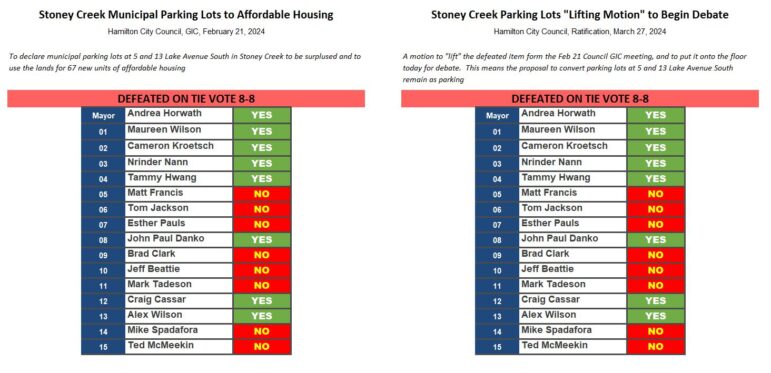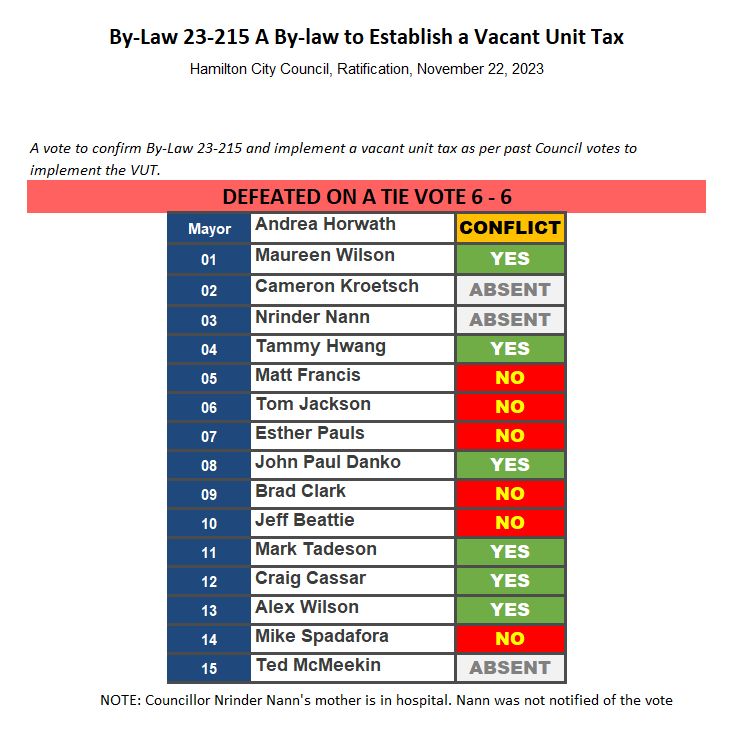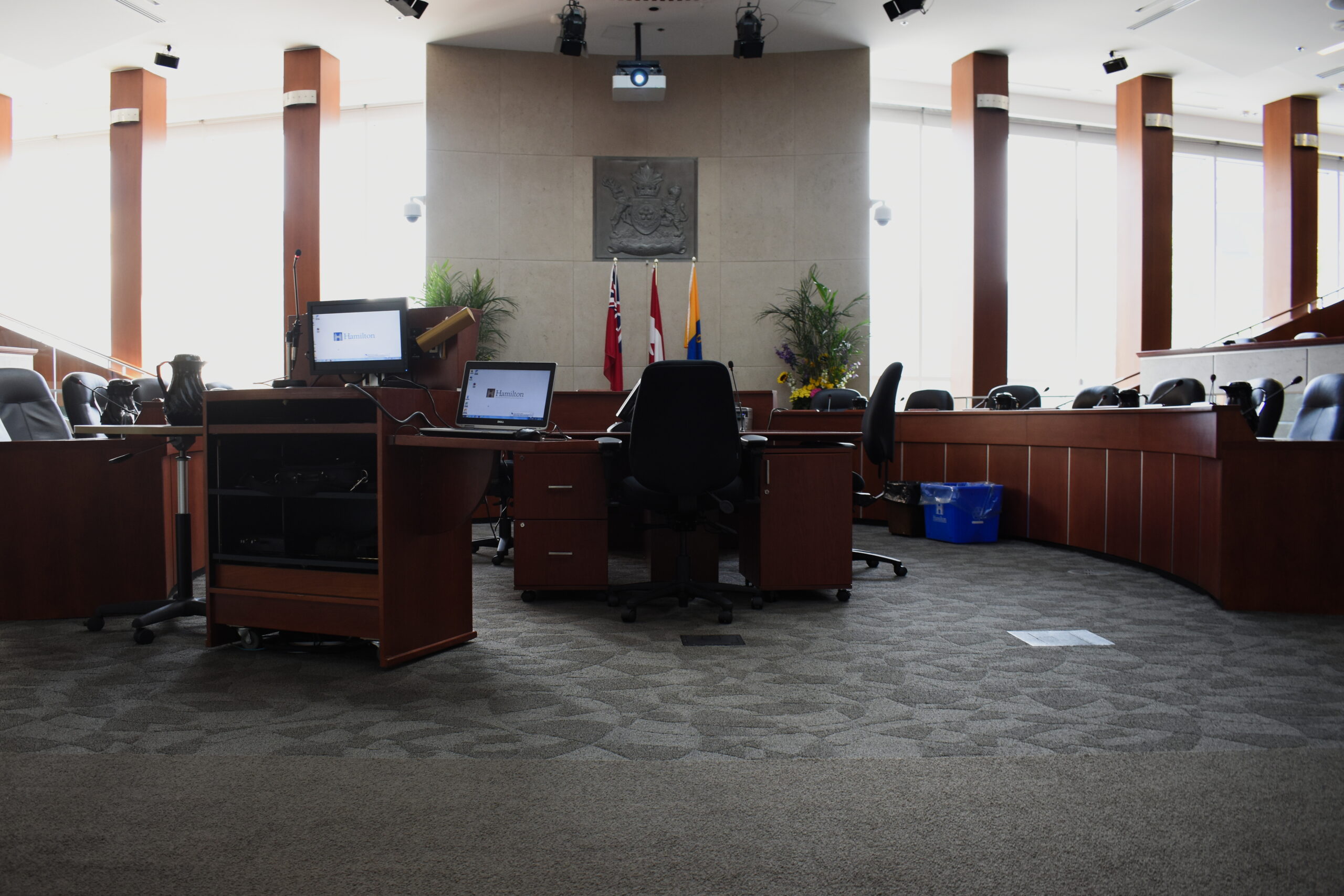Hamilton City Council will vote Wednesday on two confirming bylaws for issues that have divided city councillors in recent months: declaring two Downtown Stoney Creek parking lots surplus to be used for affordable housing development and implementing a Vacant Unit Tax for the 2025 calendar year.
By-Law 24-057: Declaring 5 & 13 Lake Avenue South as Surplus
Hamilton City Council deadlocked in an 8-8 vote on a recommendation from the City’s Housing Secretariat to declare portions of the City’s Downtown Stoney Creek parking lots surplus and to use the lands for affordable housing development.
Following the recommendation’s defeat, Mayor Andrea Horwath announced she would use a Strong Mayor veto to break the tie. The mayoral veto implementing bylaw will be voted on this Wednesday.
If all sixteen council members are present for the bylaw vote, five councillors must join Horwath for it to pass under the one-third support requirement for Mayoral bylaws.

By-Law 24-062: “A By-law to Establish a Vacant Unit Tax”
The majority of Hamilton City Council approved a VUT in February 2023. The implementing bylaw was brought to Council in late November 2023. Implementing bylaws are traditionally a housekeeping matter for municipalities in Ontario.
The implementing bylaw was voted down in a 6-6 tie vote, the first time the City of Hamilton has seen a council decision reversed in the bylaw approval stage.
As a result, the City could not implement a VUT for the 2024 taxation year, despite having hired staff and sent out notices informing people to prepare to declare the occupancy of their residential property.
In February, Council directed staff to bring the implementing bylaw back for a final vote. Ward 2 Clr Cameron Kroetsch, Ward 3 Clr Nrinder Nann, and Ward 15 Clr Ted McMeekin were absent during the November vote.
If all six councillors who voted for the VUT bylaw in November remain in favour, the bylaw will have the necessary support to pass, provided all council members are present for the vote.

Numerous interest groups have circulated emails in recent days calling on the City of Hamilton to scrap the Vacant Unit Tax following the City of Toronto’s VUT administration fiasco.
[Hamilton & District Apartment Association email]
Related: Toronto’s Vacant Home Tax “Mess”
The City of Toronto received tens of thousands of complaints after property owners received vacancy tax bills in early April, including many who filed their mandatory declarations being charged late fees.
Toronto is now scrambling to overhaul the program. (and waiving late fees.)
Mayor Olivia Chow apologized, saying, “It is not acceptable the way that we rolled out this program,” and promised, “We’re cleaning up this mess. I apologize.”
At the root of the problem is that property owners must declare their properties’ occupancy status every year. Toronto says around 650,000 of the city’s approximately 800,000 residential tax accounts filed declarations before the deadline. More than 167,000 properties received additional tax notices, and 108,000 have had their charges reversed after making late declarations.
Toronto council approved major changes to VUT administration, including deeming 58,000 properties that made declarations last year, but did not declared this year, to be occupied.
RELATED: From Monday: Matt Francis on the Vacant Unit Tax, Opening Municipal Lands for Housing, and Seeking a “New Deal” with Ontario
Production Details v. 1.0.0 Published: April 19, 2024 Last edited: April 19, 2024 Author: Joey Coleman Edit Record v. 1.0.0 original version

